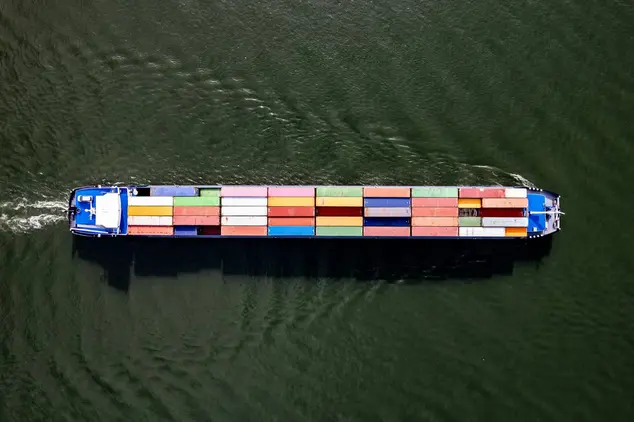


Ultimate Medical Academy
For nearly 30 years, UMA has helped students build rewarding healthcare careers. With personalized support from day one to graduation, you’ll stay on track to reach your goals.



South University



Post University (Online)

If you're looking to widen your educational horizons and achieve exciting career goals, consider exploring the fields of Marine Science & Transportation in higher education. These multi-disciplinary fields offer a diverse range of opportunities, equipping you with the knowledge and skills to tackle key issues related to marine ecosystems, maritime industry, and ocean transport operations. It's an exciting and challenging journey of discovery that comes with the potential to positively impact our planet and its resources. As an authoritative and trusted source of accurate educational information, we can guide you in making this significant step toward achieving your educational and career aspirations.
Studying a program in Marine Science & Transportation equips you with the knowledge and skills needed to explore and understand our oceans and marine life while gaining expertise in marine transport systems. This comprehensive and exciting field helps you dive into various aspects of marine sciences, including oceanography, marine biology, and conservation. Additionally, you'll delve into the crucial elements of transportation such as maritime operations, logistics, and policy making. The main goals of studying this course include:


Diving into a program in Marine Science & Transportation allows you to uncover the secrets of the vast oceanic world and understand its intricate connections to human civilizations. This academic journey equips you with fundamental knowledge and specialized skills crucial to addressing marine conservation issues, optimizing maritime operations, and conducting marine-related research. This in-depth study also prepares you for an array of careers in oceanography, marine biology, maritime law, environmental consulting, marine transportation, and more.
To embark on a higher education program in Marine Science & Transportation, you'll need a combination of academic achievements and practical experiences. You would benefit from a robust science background at high school level in subjects like biology, chemistry, and physics. These subjects will form the foundation of your understanding in marine science. Additionally, exposure to oceanography, marine biology, or any other relevant marine-focused disciplines will be advantageous. If you've engaged in practical experiences such as internships, volunteer work or research projects related to marine science, these can strengthen your application. Remember, it's not just about the academic side. Experience in boating and navigation may be considered advantageous by some institutions, especially those with a focus on the transportation aspect. Let's distill these down into a succinct list of experiences you'll want to gather:
Remember, each institution may have different requirements, so it's encouraged to check with your desired institutions before you apply. Don’t be discouraged if you’re lacking in some areas. These are guidelines, not hard-and-fast rules. With determination and passion, you are capable of succeeding in a Marine Science & Transportation program.

If you're enthusiastic about marine science and transportation, several exciting careers await you after completing your post-graduate studies in this field. This field merges scientific understanding and practical skills for effective maritime management. Scientists, researchers, transportation specialists, and environmental consultants are just some of the roles in this multidisciplinary domain. These roles require a deep understanding of marine ecosystems and proficiency in coastal management. You'll have opportunities to contribute to crucial areas such as forming sustainable fisheries practices, managing marine pollution, facilitating effective sea transport, and conserving marine wildlife. It's not just about jobs but carving a career track that makes a real difference by striking a balance between economic progress and marine ecology.
According to the U.S. Bureau of Labor Statistics (BLS), the median annual wage for water transportation workers was $66,490 in May 2024. The median wage is the wage at which half the workers in an occupation earned more than that amount and half earned less.
If you choose to pursue a postgraduate degree in Marine Science & Transportation, you will open up a myriad of job opportunities. This particular field of study can lead to rewarding careers that encompass a variety of roles. Some graduates go on to become marine biologists and oceanographers, investigating the mysteries of sea life and ocean processes. Others become marine policy experts, applying their knowledge to the development of legislation and regulation concerning marine activities and resources. You may also venture into the field of marine transportation, managing operations and ensuring the efficient movement of goods across the world's waters. The earning potential in these areas largely depends on the specific role and location, among other factors. Nonetheless, it’s UNAVAILABLE to provide a specific estimate for each role. Remember, pursuing higher education is not just about income—it's about following your passion and contributing to the world in your unique way.